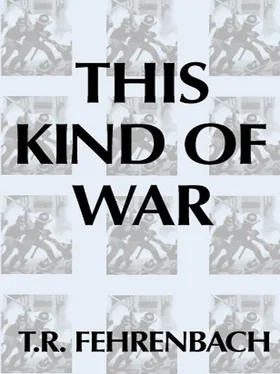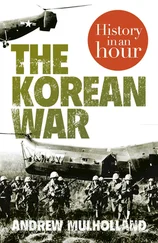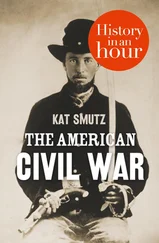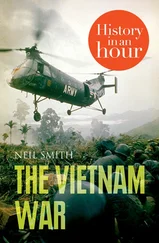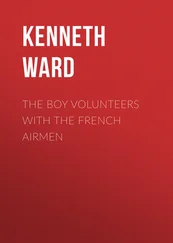The artillery fires laid down in Korea during the latter periods normally far exceeded anything fired in either of the two world wars, day after day. The average fire falling on U.N. lines was 24,000 per day.
The CCF sent two divisions piecemeal into White Horse and Arrowhead. The French Battalion held Arrowhead for four days, under incessant attack, losing no ground. White Horse, held by ROK's of the 9th Division, changed hands twenty-four times between 6 and 15 October. When the battle ended, all U.N. territory was back in friendly hands.
And the hillsides were dotted with the bodies of thousands of ROK's and Chinese.
On White Horse, and on the central front, around the Iron Triangle, the ROK Army now proved it had come of age. With only a few American tanks, and generally with American artillery in support, the ROK's were weaker in firepower than American units, and at first more easily overrun. The CCF preferred to hit them, given a choice. But the ROK's had had two years to prepare; they counterattacked with stubborn courage, and time after time threw the CCF back.
On the Kumwha sector, ROK's and CCF locked in heavy combat, all over limited objectives. On Sniper Ridge, changing hands daily during November 1952, the ROK soldier proved he had lost all his superstitious horror of his ancient masters.
He killed thousands of Chinese, while that fall he himself suffered forty thousand casualties. But the front hardly changed at all. In front of the ROK position, the ground was cleared of Chinese only to the extent of six hundred yards.
During these bloody battles there was some comment that KMAG was presiding over the slow death of the ROK Army, to preserve American lives.
The hill battles that raged all across the front, though mostly in the western zone, accomplished little, except again to provide revulsion in American ranks against the casualties suffered. When the totals reached Washington, there was a certain amount of despair. Quietly, some men began to talk of taking the offensive, and even more quietly, of the use of the atomic weapon.
The Chinese, seemingly, had no regard for the lives of their conscript soldiers; the West did.
But doing its best to preserve lives, the U.N. Command still had to defend its ground. And while men died, the names of blasted, forsaken humps of ground, outposts Reno, Carson, and Vegas, of the Marines; Baldy, Arrowhead, and Pork Chop of the 2nd Division; Triangle Hill and Sniper Ridge and Big Nori of the ROK's, and dozens of others, became infamous. U.S. and ROK divisions went on line and off it; they turned over their prize property to other units; then, weeks later, came back to reclaim it.
When enough men had died on a hill, their comrades began to hold a grim fondness for it. "Take good care of our Pork Chop," soldiers of the Thai Battalion wrote on their bunker walls when they turned it over to the 7th U.S. Division on relief.
The intense attacks on the U.N. outposts during 1952 were undoubtedly political in nature. The Chinese, balked on the POW question, took this means during an election year to pressure the United States out of the war. The policy was a costly failure.
The American soldier and officer who held the line in late 1952 and early 1953 was yet another breed from the man who had gone into Korea, who had fought during the massive battles of 1951, or who had watched the front during the second Korean winter.
The recalled reservists were largely gone now, their time—seventeen months for veterans, twenty-four for others—expired. The National Guardsmen of the 40th and 45th divisions had gone home, though these two divisions remained on the FECOM trooplist, as Army of the United States units, filled with other personnel.
The average man of the infantry companies was a selectee, and rapidly, he was becoming a special sort of selectee.
The first of draft call, in the summer of 1950, was a vacuum cleaner—sprung without warning, it took skilled and unskilled alike, high-school senior and college teacher together; there was no time to escape.
The Army got a great number of highly skilled men, which it badly needed. Throughout all history, only the pinch of poverty or the pressure of the draft board has made men in large numbers enter the ranks; this has always been the defensive weakness of a mercantile society, whether Carthage, Britain, or America. But by 1951, there was little poverty, and the draft pressures had relaxed.
Thousands of young men, with no stomach for infantry war, entered other services to avoid it, generally in the following priority: Coast Guard, which could pick and choose the best; then Navy and Air Force, where skills were more at a premium, and combat dangers—in this particular war—less. The Marine Corps, which had written some of its most glorious history at Changjin, and which kept its standards high, had difficulty recruiting up to authorized strength. For as one high-school student, who had been at the reservoir as a reservist, returned to his old school and said: "For God's sake, watch where you enlist—the Marines will kill you!"
There was exemption for students, and anyone who could get into college and keep his marks up, or join ROTC, had it made. Parenthood—even ex post facto— was a good out.
Understandably, with an unpopular war that had little public enthusiasm or support, the quality of men left over for the Infantry declined.
By May 1952, of over 5,000 new trainees entering the 1st Armored Division at Fort Hood, Texas, slightly over half had Army General Classification Test scores of 80 or under—by Army standards unfit for training at any Army school, including cooks and bakers. It seemed an unmistakable trend that only those too stupid to figure an out were coming into the ground forces.
Yet, these men proved they could fight, and fight well, when trained.
The involuntary Reserve officers who had fought on Bloody and Heartbreak had left, most saying " Damnation memoriae " to the service, and their places had been taken by the new products of the college Reserve Officers Training Corps.
Very few of these young men, though intelligent and better educated than almost any wartime American officer corps had been, had seen hardship before. They were keen and alert, but tended to be permissive with their men. They had a difficult time with platoon command, because ROTC had given them little practical experience with the rough and tumble of combat; but graduated to staff jobs, they gave the Army an indispensable balance of poise and education junior officers promoted from the ranks could not.
Ironically, the officer who is often best at leading small units of men, who can rough it in the earth, living in filth and danger beside his men, the familiarity breeding no contempt, often is helpless when put behind a desk.
The ROTC boys worried their battalion commanders while they were in command of platoons and companies, at ages ranging from twenty-one to twenty-four, but—if they survived—they were invaluable later up on staff, where the pen is always mightier than the sword.
Few of these men, either officer or soldier, had a strong belief in the reasons for which this war was fought. They came because they had to, they did what they had to do, with one eye on Panmunjom, and when their time was up, they went home.
Oddly, they were never sanguine about their own combat prowess. Most of them, officers and men, felt a deep respect for, and almost an inferiority before, the various professionals that comprised the other U.N. troops in Korea. Their praise of the allies—the French, Thais, Turks, and Abyssinians—was far removed from the grousing about allies that had marked most previous wars. Most Americans, privately, would admit the U.N. troops were better than they were.
Which was highly surprising, since until the last, captured CCF intelligence documents always indicated the Chinese considered Americans the best.
Читать дальше
